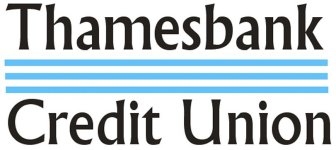 |
 |
|
|
Credit Unions - Frequently Asked Questions Want to join? Details and forms here
|
What is
a Credit Union? Credit Unions are widespread around the world. Over 100 million people are currently benefiting from credit union membership in 85 countries throughout the world. They are particularly strong in the USA, Canada, Eire and Australia. In August 2002, there were approximately 700 registered Credit Unions in Great Britain with over 300,000 members and around 200m in assets. The membership criteria is based around a common bond, something which links members together. For example, it could be that members live or work in the same area or work for the same employer. Credit Unions are run by volunteers elected by the members of the Credit Union at their Annual General meeting. Credit Unions are not allowed to charge more than 1% a month on loans (APR 12.68%). Members also benefit from loan protection insurance at no extra cost to themselves. There are no hidden "extras" with a credit union loan. Being mutual, Credit Unions are 'not-for-profit' so any operating surplus - money left over from running the Credit Union - can be repaid to members in the form of a dividend on the savings of members or used to improve the service to members. In any one year, dividends of up to 8% can be paid. The savings of members are often protected by life assurance at no extra charge to the member. In Great Britain Credit Unions comply with the 1979 Credit Union Act and are regulated by the Financial Services Authority (FSA). All Credit Unions in Great Britain are members of the Financial Ombudsman Service and participate in the Financial Services Compensation Scheme. In Northern Ireland Credit Unions are not regulated by the FSA but are regulated by the Registry of Credit Unions and Industrial and Provident Societies. The credit union is directed and controlled by a volunteer
Board of Directors. All officers of the credit union are members of
the credit union, who are elected by the membership at the Annual General
Meeting. All members of the credit union have one vote, regardless of
how many shares they own. Credit unions are not a local or a new phenomenon.
Credit unions are active in over 80 countries, and over 100 million
people internationally are members. The government and many other organisations
see credit unions as a valuable tool in their mission to tackle financial
exclusion. People who are concerned about the closure of bank branches
and the demutualisation of building societies are also advocating the
development of credit unions. Credit unions make sense for many reasons
and they are tipped to be the next big thing in financial services. Running a credit union Democracy
Board
of Directors Credit
Committee Supervisory
Committee All elected officers in a credit union must receive
training in running and directing a credit union. They must also be
recognised as Approved Persons by the Financial Services Authority.
|